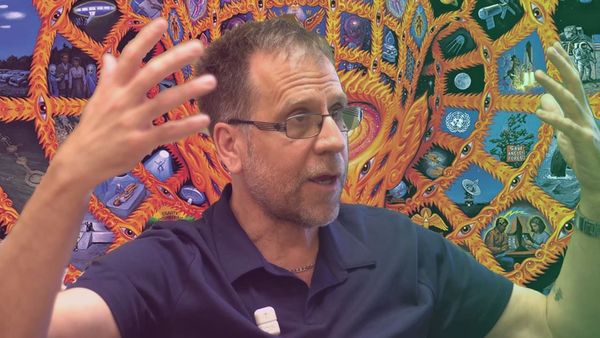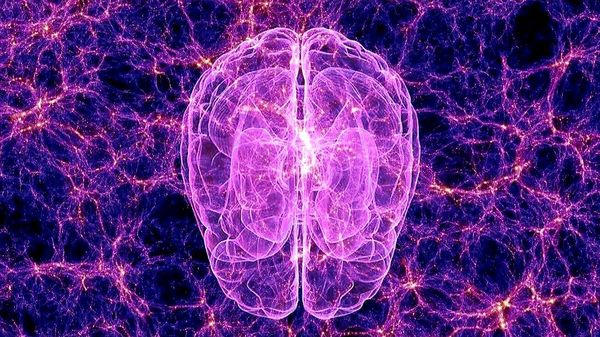Anthony W. Richardson • • 5 min read
Why You Should Leave Your Comfort Zone to Search For Anxiety

Familiar story time. Go: Your eyes grudgingly flicker open. You growl at the realization of your precious sleep being interrupted. You stir, roll over and glance at the clock. “$#*& !!!”
It’s 8:30. Your brain starts having an inner dialog with the CAPS LOCK on because your alarm didn’t go off. “$#*& !!!”
Sheets go airborne.
You have to be at work at 9:00 and you’re normally out of the door, showered, dressed and presentable by now.
Oh god, oh god, oh god.
Panic sets in.
You’re already in your pants. Feet are finding their way into shoes and fingers are fumbling their way through the loophole of a tie.
It takes 5 minutes, and you’re out the door, operating a motor vehicle and carrying a bagel around in your mouth like a golden retriever with a tennis ball.
Familiar story?
Let’s take a peek behind the cranial curtain and see what’s really going on.
Ah, Memories
Here’s the above story in brain speak:
- Your hypothalamus woke up you up.
- Your cerebellum gave you attention and activated a procedural memory of checking the clock.
- When you saw the clock, your cerebral cortex engaged your attention and slapped you with some adrenaline.
- The cerebrum got you moving.
(read how to never let this happen again)
Before your attention begins to wane, please consider this simple question:
Why did this have to happen in the first place?
To get to the root of this answer, we need to look at a part of our brain called the frontal lobe. The frontal lobe helps us make assumptions about the future by referencing existing memories. When you plan, predict and build intentions your frontal lobe lights up.
Put simply, the frontal lobe remembers <what happened> the last time you did <X behavior> and uses that information to decide <what to do next>.
It struck me one day that the frontal lobe works a lot like Google. Your memories are the search results, and your intention is what you plan to do with them.
What makes you so anxious about being late is the unconscious triggering of ‘lateness memories’ and the negative feelings that accompany them.
It goes like this:
Stimulus: I’m going to be “Late to work”.
Recall: Your frontal lobe then quickly searches: “Being late to work”.
Results: About 1,382,382 results (.083 seconds) Top result:
“Being late to work is bad.” Source: WhereIWork.brain A blog entry about the last time your co-worker, John, was late and the female boss backhanded him with her ring hand.
This neurological chain reaction only becomes negative when the search results are all skewed and spammy. Like if we land on fear and anxiety when we searched for “adventure.”
To avoid these negative instances, it’s important to understand that our minds live with one foot in the past. Memories, in all their abstract forms, are shaping your perception in every moment.
Read: How the Internet, Dopamine, and Your Brain are Working Together to Screw Your Potential
But what would happen if our brain didn’t remember and predict? What if it just observed and computed?
Ignorance Really is Bliss
Imagine a situation where your frontal lobe arrives at two different memories at the same time.
For example, say you suddenly feel a sharp pain in your left arm.
If you’ve read up on heart attack symptoms, you’ll begin to worry. Panic, anxiety, fear. A cocktail of fight or flight chemicals intoxicates your brain.
The condition “cyberchondria” makes a person believe they are always ill because they are overly informed – every sensation is a symptom.
Conversely, if you’re unaware about common heart attack symptoms, the search engine of your mind will make a different list of potential explanations. Gardening? Slept Awkward? Too much flexing in the mirror?
The same fear brought on by the heart attack hypochondria doesn’t occur.
Same input, different results.
Of course, a third option is to steer your mind away from both memory-based conclusions and into the present moment.
“Just because you asked one girl out and she slapped you last time doesn’t mean that all girls will slap you and transversely, just because the last girl you asked out said yes doesn’t mean that the next one will either.”
Another word for living in the present moment is mindfulness. By regularly practicing mindfulness and meditation you can transform your hyperactive frontal lobe from the Hulk back into Bruce Banner.
“But I love the Hulk!” you protest.
As do I, but I wouldn’t want him in my dining room.
There’s a time and a place for superheroism.
The Science of Being Ordinary
In 1908, scientists discovered that a steady life creates a steady performance [PDF].
This is partially because our brains steer us away from (assumed) occurrences where the (expected) outcome could cause stress, panic and anxiety.
After prolonged stress avoidance, we get swallowed by the cushions of our comfort zone.
The words have sounded so cushy, friendly and warm ever since Judith Bardwick first used them back in 1991. Routines, patterns, and predictable outcomes live here, and chances are you do too.
It’s a magical place where nothing is unexpected, fears never make an appearance, everything can be achieved with small amounts of effort and life just … happens. Mmmm.
Damn that.
I prefer Bear Grylls’s definition. He calls it a “comfort pit” because, well, pits aren’t very comfortable.
Everyone knows pitfalls can’t be avoided, but you don’t set up camp and roast marshmallows when you fall into one. But the old saying “Life begins at the end of your comfort zone,” doesn’t tell the whole story.
Performance increases with physiological or mental arousal, but only up to a point. When levels of arousal become too high, performance decreases. When levels are too low, performance decreases.
The right amount of challenge provides the right amount of stress, which provides the uncomfortable benefit of providing new memories. Instead of simply accessing old memories, you create memories.
If your boss says “Make this sale or, you’re fired” you’ll be too stressed to function optimally. However, if your boss provides you with a challenge of “You made five sales last month. This month I want eight.” Bam. Optimal anxiety.

Optimal anxiety marks the sweet spot of success. Too high and you flounder, too low and you stay in bed.
How to Literally Change Your Mind
Because stored memories unconsciously hijack our decision-making, we need to consciously take control of this system by creating new memories or reference experiences that shape our destiny positively.
I want you to make a fundamental change to your personal development paradigm. Instead of searching for the beliefs that will shape your experience, you should, instead, search for the experiences that will give you the beliefs you want.
Let’s use the example of skydiving. You can’t manipulate your fear of falling before you jump; you jump to manipulate your fear. It is not the skydiving itself that is the goal; skydiving is simply the stepping stone towards being the type of person who skydives.
By seeking the challenges that supply optimal anxiety, you’ll be able to generate new memories that end up lowering your anxiety in stressful situations.
This is the essence of growth: by incrementally heightening the stress bar in your life, you’ll only have to stretch a little to jump over it.










